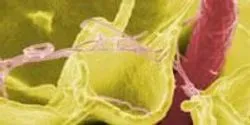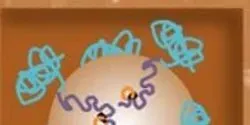Vaccines

A Kansas State University professor is researching ways to keep animals and humans safe from tick-borne diseases.

Scientists at Benaroya Research Institute at Virginia Mason (BRI) recently received a $2.2 million grant from the National Institutes of Health to find a unique biomarker that initiates and drives allergies. This grant expands on previous discoveries that led to the isolation of a type of white blood cells that show up only in people with allergic disease.

One of the major benefits of working in the sciences is the ability to have a positive impact on the world through research or the development of new products. That’s certainly the case with working at Redbiotec AG, a biotechnology company located at the Bio-Technopark in Schlieren, near Zürich, Switzerland.

Researchers from the University of Rhode Island are championing a recent breakthrough in the laboratory with hopes it could lead to a vaccine against the pathogen responsible for stomach cancer and to therapeutics for inflammatory diseases.

An innovative vaccine technology makes use of reengineered salmonella to deliver protective immunity. If such recombinant attenuated salmonella vaccines, or RASVs, can be perfected, they hold the promise of safe, low-cost, orally-administered defenses against viral, bacterial, fungal and parasitic infections.

Vaccines combat diseases and protect populations from outbreaks, but the life-saving technology leaves room for improvement. Vaccines usually are made en masse in centralized locations far removed from where they will be used. They are expensive to ship and keep refrigerated and they tend to have short shelf lives.











